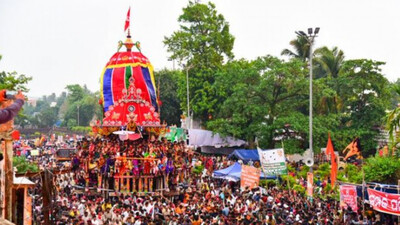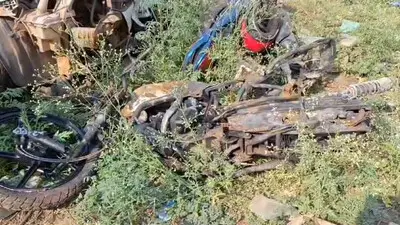Recommended Stories
New Delhi: Tormented? Abused? Humiliated and threatened to be evicted from the house? Yes, you can always seek assistance from the nearest 'friendly' women's organisation. But what if you are not a woman?
Aggrieved men are now finding strength in numbers by banding together to cope with assaults to their dignity and pride by women as well as to fight for equal rights to men.
"The Indian court has shielded women from mistreatments from their husbands under the Domestic Violence Act (2005), ensuring every married woman lives with dignity and pride. But it is not always women who face oppression at home and the Act fails to address men who undergo a similar torture," says Atit Rajpara, President of Men's ights Association (MRA).
Acting as rescuer, this "non-funded, non-aided, registered NGO" for men was initiated by Rajpara in the summer of 2011 and currently functions out of his hometown, Pune.
"My wife filed a fictitious litigation against me back in 2010 and booked me with section 498 which defines cruelty by husband or relatives of the husband. I decided that it was the high time that a NGO must come forward to help men like me," he says.
Rajpara points out that according to the National Crime Records Bureau (NCRB) every eight minute, a married man commits suicide out of marital or financial pressure "because the society raises men in a way where they are not allowed to ask for help, neither complain, nor show their weaknesses."
Anurag Goyal a divorcee earing a salary of Rs 50,000 says he has to give his wife a compensation of 20,000 for maintenance.
"I have always seen my wife shopping and going around. My wife is educationally qualified but she doesn't want to do a job. And here I struggle every day to make money," says Goyal.
Rajpara questions the absurdity of the law which takes away his right of speech if a sexual harassment case if filed against him "even if it is false". The NGO receives 8-9 calls per day from the men who have been on the receiving end due to the new Domestic Law Act.
Rajpara mentions one such case - Sunil (name changed), a primary teacher based in Delhi who after being married for four years had a secretive affair, which included consensual sex, for six months with a teacher who had joined his school.
The teacher eventually married, but when confronted by her husband, she denied the affair and termed it as rape. As a consequence Sunil had to spend 218 days in jail and is still fighting for the case on bail with assistance from Rajpara.
"All we want is proper trials that should be fairly conducted and not just approve husbands as guilty. Also, a woman must also get the same punishment as a male gets when proven guilty," says Swarop Sarkar, General Secretary, MRA.
President of All India Forgotten Women Association, is another organisation that claims to work in favour of men who are dragged into court on trumped up cases of rape, harassment and dowry by women.
Its president Jyoti Tiwari says,"The new divorce law in the country is favouring women by granting them ancestral properties after a woman files for a divorce regardless of the time period the man is provided with. Only a woman can oppose a divorce and it is not in the power of men to oppose it."
Tiwari herself is fighting a case on behalf of her late brother who was being charged with section 498 dowry by his wife after he failed to pay Rs 30 lakh as compensation to settle a divorce suit.
Many people are of the opinion that women's rights should be kept exclusive.
Mohan Gopal, a former Director of the National Judicial Academy says, "For now it is women who are suffering at the hands of men and must be served with justice first. That does not mean men must not be given equal rights, but everything matters with time."
Others however think that it is a foolish idea to demand justice for men when they already have so much in their favour.
Indira Jaisingh, a senior advocate and an activist for women's rights says, "Why should men be covered under the PWDVA act when they already so many rights to appeal with. It is a male dominated society where women must be given special rights to defend their lives with."
The Protection of Women from Domestic Violence Act (PWDVA), was brought into force October 2006, apart from wives and live-in partners, also extends protection to sisters and mothers.












